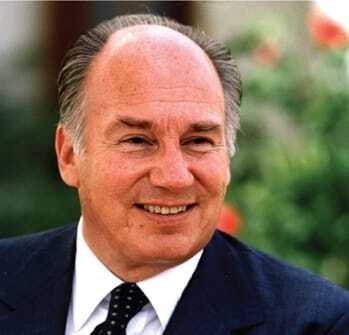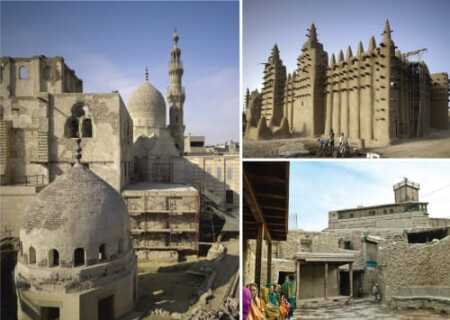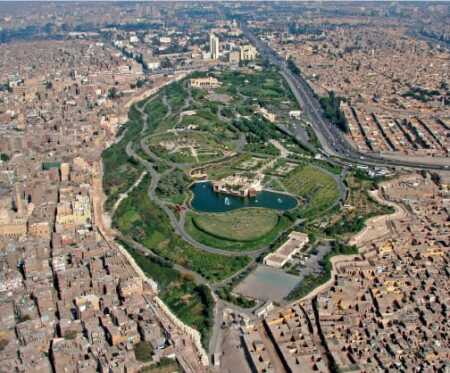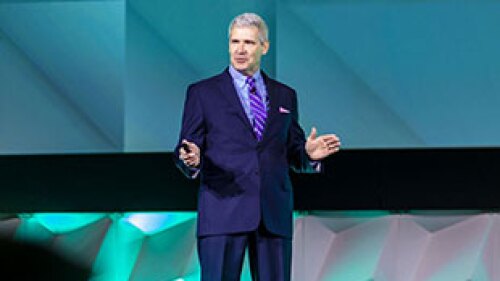| His Highness the Aga Khan |
His Highness the Aga Khan was named the 12th winner of the J.C. Nichols Prize for Visionaries in Urban Development at ULI’s 2011 Fall Meeting in Los Angeles on Thursday, October 27. The prize—an opportunity for the Institute to recognize a distinguished professional whose work is transforming the built environment—was awarded to the Aga Khan for the breadth of his organization’s development and restoration efforts throughout the developing world. The Nichols Prize jury cited a desire to increase awareness of and build a bridge between developed and undeveloped worlds, offering ULI an opportunity to share knowledge and best practices with the non-Western world as it looks forward to its next 75 years.
.
Luis Monreal, the director general of the Aga Khan Trust for Culture, accepted the award on behalf of the Aga Khan and announced His Highness’s intention to match the $100,000 honorarium to create a program, in collaboration with ULI, to address urban planning and development challenges faced by cities in the Muslim developing world. “In the countries of Africa, Central Asia, and South Asia, the growth of urban populations is rising faster than cities and infrastructure can cope,” Monreal explained. “Municipal planning departments do not have the capacity or experience to adequately address many of the problems of land use, density, housing, and the transition from rural to urban environments.” The collaboration between the Aga Khan Trust for Culture and ULI would address these problems by building the capacity and enhancing the proficiency of planning and development in these cities through professional workshops and internships.
The Aga Khan himself defies nearly every Western stereotype of an Islamic religious leader. He is a citizen of the United Kingdom, but resides in an 18th-century chateau in Chantilly, France. In order to enhance the status of women, he frequently travels in the Muslim world with his Harvard-educated daughter, Zahra, who works on social development issues for his philanthropic network. He is a horse breeder, a newspaper proprietor, a yachtsman, a developer, a financier, and a philanthropist of almost unparalleled scope. Of greatest importance, he is widely considered the most successful Imam of the Shia Imani Muslims and is deeply committed to improving living conditions and opportunities in the developing world.
| The Altit Fort in Hunza, Pakistan. Restored by the Aga Khan Trust for Culture. |
The scope of his work is best illustrated through the Aga Khan Development Network (AKDN). With an annual budget of $625 million for development—a scale more fitting for a small country than a nonprofit organization—the wide-reaching AKDN has for more than 40 years created economic development, microfinance, education, cultural preservation, tourism, and humanitarian assistance programs throughout the Muslim world. Through large-scale institutions such as universities and medical centers to small but no less important projects like clinics, wells, and schoolhouses, the AKDN has greatly improved the living conditions of some of the most disadvantaged and war-ravaged populations in the world.
The efforts of the Aga Khan have contributed globally to a higher-quality built environment and strengthened both communities and society at large. As James DeFrancia, chairman of the Nichols jury, explained: “In this time of both unrest and great hope in the Arab and Muslim worlds, the jury was moved to honor a leader who has raised the quality of life in these regions without regard to nationality, creed, or gender.” And through a new and exciting collaboration between organizations, ULI hopes to use its expertise and knowledge to help build the capacity of these emerging democracies.
| Cairo’s Al-Azhar Park |
The Nichols Prize, endowed by the family of Jesse Clyde Nichols, honors the legacy of the legendary Kansas City, Missouri, developer. A founding ULI member, J.C. Nichols(1880–1950) is widely regarded as one of America’s most influential entrepreneurs in land use during the first half of the 1900s.





